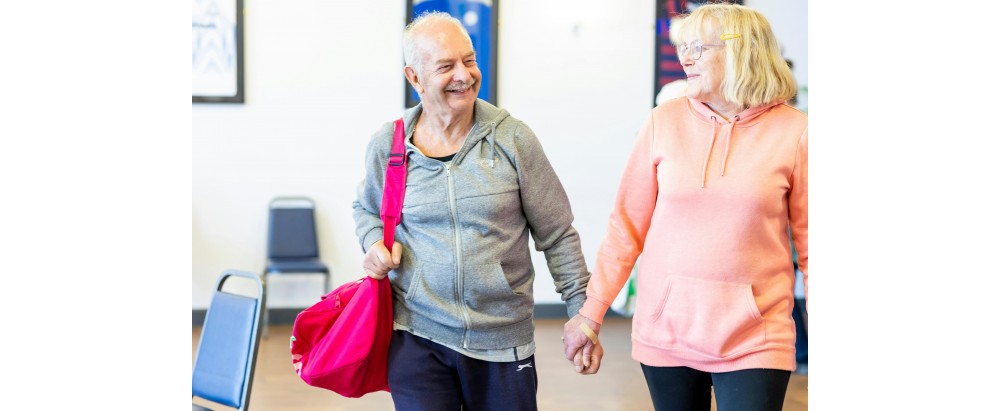- Healthcare Medical Devices₹1,195 ₹1,205₹210 ₹849₹3,499 ₹6,800
- Patient & Elderly Care
- Diabetes Care
- Body Care & Fitness
- Baby & Mother Care
- Clinical & Hospital Products
- Surgical Supplies
In-Home Care Tips: Incorporating Healthcare Products for Senior Wellbeing
2024-10-27 07:33:28
0
By: Rose Georgia
Times Read: 1111

30 Seconds Summary:
● In-home care for seniors focuses on maintaining their well-being, safety, and independence. Key tips include incorporating mobility aids like walkers and grab bars to prevent falls, using daily living aids such as adaptive utensils and medication organizers, and managing chronic conditions with healthcare products like blood pressure monitors and oxygen concentrators.
● Cognitive support tools, home modifications, and emotional well-being products like video calling devices and hobby kits also enhance seniors' quality of life, allowing them to age comfortably in place while receiving personalized care.
As our loved ones age, maintaining their health and well-being becomes increasingly important, particularly for those who wish to age in place. In-home care for seniors offers an opportunity to provide personalized care in the comfort of their own homes, ensuring their physical, emotional, and psychological needs are met. For caregivers and family members, incorporating appropriate healthcare products into a senior’s daily routine can significantly enhance their quality of life, promoting safety, independence, and dignity. This comprehensive guide will explore key in-home care tips, focusing on integrating healthcare products that cater specifically to the needs of seniors.
1. Understanding Senior In-Home Care Needs
Each senior has unique healthcare requirements that vary based on age, mobility, medical conditions, and lifestyle preferences. Effective in-home care must consider physical, cognitive, and emotional well-being to provide a holistic approach. Below are some essential factors to consider when planning in-home care for seniors:
● Mobility and Independence: As seniors age, they may face challenges with mobility, making it harder to move around the house, perform daily tasks, or even maintain their balance. This can increase the risk of falls, a common cause of injury among older adults.
● Chronic Health Conditions: Many seniors deal with chronic conditions such as diabetes, arthritis, heart disease, and cognitive decline. Managing these conditions often requires medication management, regular monitoring, and lifestyle modifications.
● Mental and Emotional Wellbeing: Aging can be an emotionally challenging time. Isolation, loneliness, and feelings of dependence may impact a senior's mental health. It is crucial to provide physical care, emotional support, and opportunities for social interaction.
Understanding these needs allows caregivers to create an environment where seniors feel comfortable, safe, and supported. To achieve this, the incorporation of various healthcare products is vital.
2. Healthcare Products to Promote Mobility and Safety
Mobility aids and safety products are essential for preventing accidents and ensuring senior’s independence in their own home. With the right tools, seniors can confidently navigate their environment without constant assistance. Some of the key products include:
● Walkers and Rollators: Walkers and rollators provide stability and balance for seniors who may struggle to walk unassisted. Rollators often come with wheels and a built-in seat, allowing for breaks during walks. These aids are lightweight and adjustable, making them ideal for everyday use.
● Grab Bars and Handrails: Installing grab bars in high-risk areas such as the bathroom, hallway, and stairs can significantly reduce the risk of falls. Handrails offer support when sitting down, standing up, or navigating tight spaces.
● Non-Slip Flooring and Mats: Adding non-slip mats to the bathroom, kitchen, and other slippery areas is crucial for fall prevention. These mats provide grip underfoot and reduce the risk of slipping when wet surfaces are present.
● Stairlifts: For seniors with multilevel homes, stairlifts are invaluable. They allow easy and safe transportation up and down stairs, minimizing strain on joints and reducing the risk of falls on staircases.
● Transfer Benches and Shower Chairs: Bathing can be difficult for seniors with limited mobility. Transfer benches and shower chairs allow for safe transitions into the bathtub or shower, ensuring comfort and reducing the risk of accidents.
3. Daily Living Aids for Enhanced Comfort and Independence
Daily living aids simplify routine tasks, helping seniors maintain their independence and confidence. These products are designed to assist with activities of daily living (ADLs) such as dressing, grooming, and eating. Some popular aids include:
● Reachers and Grabbers: These handy tools allow seniors to pick up objects from the floor or reach high shelves without straining or bending over. They come with long handles and easy-to-grip designs, making them user-friendly for those with limited dexterity.
● Dressing Aids: Dressing sticks, button hooks, and zipper pulls make it easier for seniors to dress independently. These tools simplify tasks such as fastening buttons or pulling up zippers, reducing the frustration associated with getting dressed.
● Adaptive Utensils: Eating can challenge seniors with arthritis or tremors. Adaptive utensils, such as weighted forks, knives, and spoons, are designed with larger grips to improve control and reduce spills. These utensils allow seniors to eat with dignity and ease.
● Jar Openers and Key Turners: Arthritis and joint pain can make it difficult for seniors to open jars or turnkeys. Specially designed jar openers and key turners offer extra leverage, making these everyday tasks more manageable.
● Medication Management Systems: For seniors, managing multiple medications can be overwhelming. Pill organizers, automatic pill dispensers, and medication reminders help ensure seniors take their medication on time and in the correct dosage.
4. Incorporating Healthcare Products for Chronic Conditions
Many seniors suffer from chronic health conditions that require ongoing management. Fortunately, healthcare products are designed to assist with monitoring and managing these conditions effectively at home.
● Blood Pressure Monitors: Seniors with hypertension or heart disease must monitor their blood pressure regularly. Digital blood pressure monitors make this process easy and accurate, allowing caregivers to track any changes and communicate with healthcare providers as needed.
● Glucose Monitors: Glucose monitors are essential for seniors with diabetes. These devices allow for daily blood sugar checks, ensuring proper condition management through diet, medication, and lifestyle adjustments.
● Oxygen Concentrators and CPAP Machines: Respiratory conditions like COPD often require oxygen therapy. Oxygen concentrators provide a steady supply of oxygen, ensuring seniors can breathe comfortably at home. CPAP machines treat sleep apnea, improving sleep quality and reducing health risks.
● Compression Stockings: Seniors with poor circulation or conditions like deep vein thrombosis (DVT) benefit from compression stockings, which improve blood flow in the legs and reduce swelling. These are especially important for seniors who are less mobile or bedridden.
● TENS Units: Transcutaneous electrical nerve stimulation (TENS) units are useful for seniors with chronic pain. These devices send electrical impulses to nerve endings, helping to reduce pain and discomfort in areas such as the back, knees, and joints.
5. Congnitive Support Tools for Mental Wellbeing
As cognitive decline becomes more common with age, it is important to support seniors in maintaining their mental sharpness and emotional well-being. A variety of products can help stimulate cognitive function and provide emotional support.
● Memory Aids: Seniors experiencing memory loss can benefit from memory aids such as digital clocks, medication reminders, and activity trackers. These devices help with time management, appointment tracking, and daily routines.
● Puzzles and Brain Games: Engaging in mental exercises like puzzles, crosswords, and brain games can help seniors maintain cognitive function. These activities keep the brain active and offer a sense of accomplishment and fun.
● Sensory Therapy Tools: Sensory therapy tools like fidget blankets or aromatherapy diffusers can help seniors manage anxiety, agitation, or stress. These tools provide sensory stimulation, helping to calm the mind and promote relaxation.
● Companion Robots: Companion robots offer a comforting presence for seniors who experience isolation or loneliness. These devices use artificial intelligence to interact with the senior, providing conversation, reminders, and emotional support.
6. Home Modifications for Senior In-Home Care
In addition to healthcare products, modifying the home environment is a key aspect of senior in-home care. Home modifications can improve safety, accessibility, and comfort, allowing seniors to age in place confidently. Here are some changes recommended:
● Widening Doorways and Hallways: For seniors who use wheelchairs or walkers, it may be necessary to widen doorways and hallways to improve mobility throughout the home.
● Lowering Countertops and Sinks: Adjusting countertops, sinks, and cabinets to a height accessible for seniors can make kitchen and bathroom activities much easier to manage.
● Lever-Style Door Handles: Traditional round doorknobs can be difficult to grasp for seniors with arthritis. Replacing them with lever-style handles can make it easier for seniors to open doors with less effort.
● Raised Toilets and Toilet Aids: Raised toilet seats and aids provide added height and support, making it easier for seniors to sit down and stand up from the toilet without strain.
● Automatic Lighting: Adding motion-sensor lighting in hallways, bathrooms, and stairways can help prevent falls by ensuring the home is well-lit, even at night.
7. Promoting Emotional Wellbeing Through Social Connection
A significant aspect of senior in-home care is addressing emotional well-being. Social isolation and loneliness are common among seniors, especially those who live alone. Incorporating products that facilitate social connection and communication can enhance emotional health and improve overall quality of life.
● Video Calling Devices: Video calling devices like tablets and smart displays allow seniors to connect with family and friends easily. These devices are often user-friendly, making it simple for seniors to stay in touch and participate in virtual gatherings.
● Hobby Kits: Encouraging seniors to engage in hobbies like painting, knitting, or gardening can promote mental and emotional well-being. Hobby kits are readily available and can provide a creative outlet for seniors.
● Pet Therapy: Pets, whether natural or robotic, can offer companionship and reduce feelings of loneliness. Robotic pets provide similar emotional benefits for seniors unable to care for a live pet without daily care.
Wrap Up
Caring for seniors at home requires a comprehensive approach incorporating their physical, emotional, and cognitive needs. By utilizing a wide range of healthcare products, caregivers can create a safe, comfortable, and supportive environment.
Title Image Source: www.pexels.com
Related Posts
Comments
Write Comment
Recent Blog Posts
The Importance of Natural Healing Remedies for Wellness
18/04/2025
0
Modern medicine dominates healthcare, but natural healing remedies experience a rising popularity in our current era. People today have reestablished their connection with proven ancient methods demonstrating how the human body can heal itself. The h...
In-Home Care Tips: Incorporating Healthcare Products for Senior Wellbeing
27/10/2024
0
As our loved ones age, maintaining their health and well-being becomes increasingly important, particularly for those who wish to age in place. In-home care for seniors offers an opportunity to provide personalized care in the comfort of their own ho...
How to Take Care of Braces: 6 Helpful Tips for You and Your Kids
09/09/2024
0
Getting braces can be a daunting experience for a child. Having to undergo a major long-term process may bring up a lot of questions in your mind as well as theirs. But you as a parent can help your child who is undergoing dental braces treatment by ...
Orthodontic Solutions for Everyday Dental Problems
15/08/2024
0
Orthodontic treatment is more than just achieving a radiant and beautiful smile. It addresses a variety of dental issues that can impact overall health and well-being. If you're experiencing dental problems, orthodontics might be the solution you're ...
8 Benefits of Exercising: Why Being Physically Active Important?
25/07/2024
0
8 Benefits of Regular Exercising: Everyone has heard that leading an active lifestyle is the key to being healthy. But what benefit may exercise provide? Do you struggle to control your weight? Begin exercising on a regular basis. Need more energy or...
It’s an Eye-emergency: How to Flush Out Your Eyes Safely
14/05/2024
0
You might be having a great day, relaxed and peaceful. But that peace is shattered when something goes into one or both of your eyes. Your eyes sting, and you feel the urge to rub them! But you know you shouldn’t! It could be a splash of some liqui...
Navigating Pregnancy: 8 Simple Tips for a Healthy Journey
27/03/2024
1
Navigating Pregnancy: 8 Simple Tips for a Healthy Journey - So, the test says you're going to have a baby, and it's okay to feel all kinds of things right now. First off, congratulations! Being pregnant is a big deal, and it's normal to have a mix of...
The Importance of Prediabetes Screening
09/02/2024
0
Prediabetes is a critical phase that comes before type 2 diabetes – It’s when your blood sugar levels are higher than normal but not yet high enough to be classed as diabetes. It also offers a valuable warning and a window of opportunity for y...























